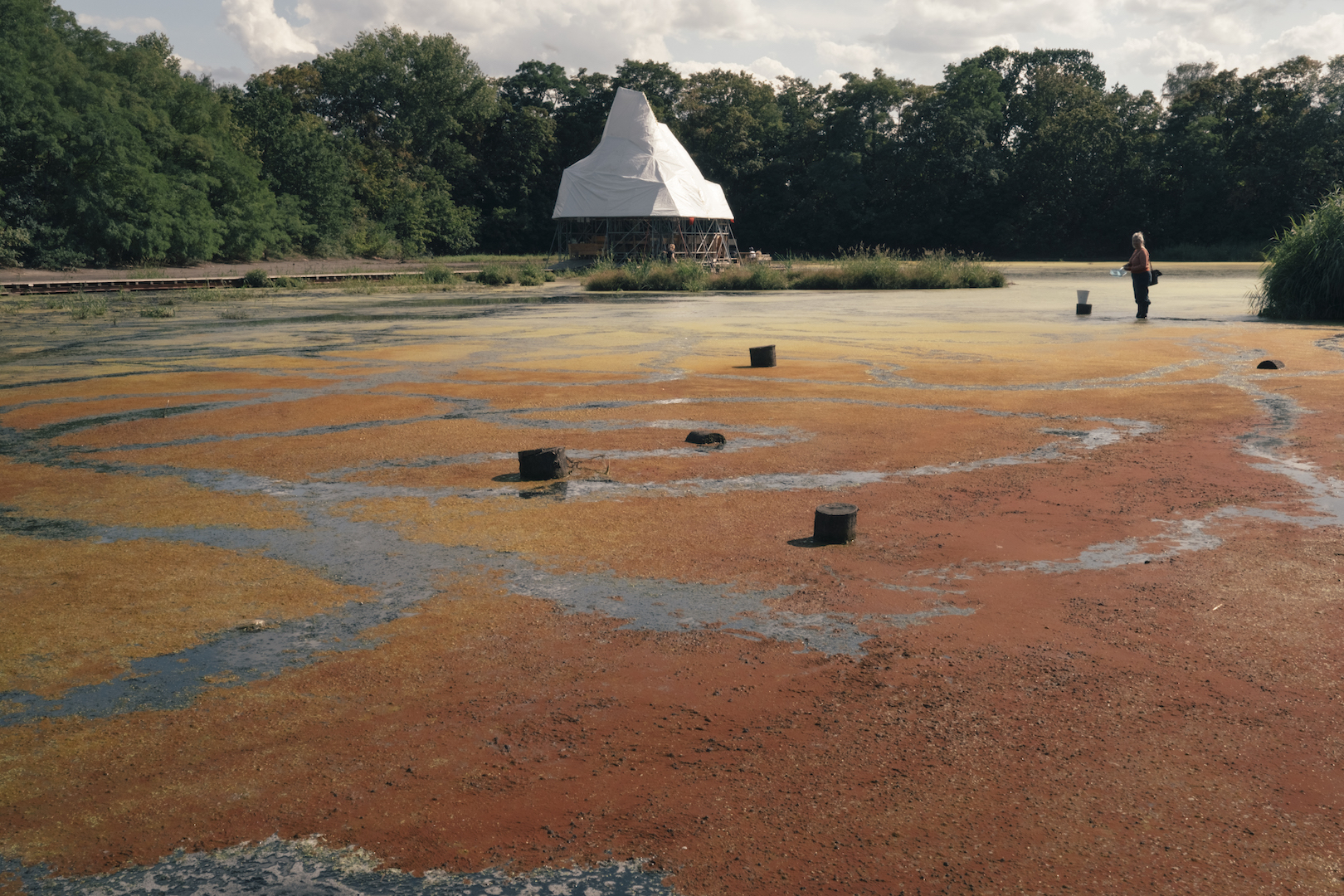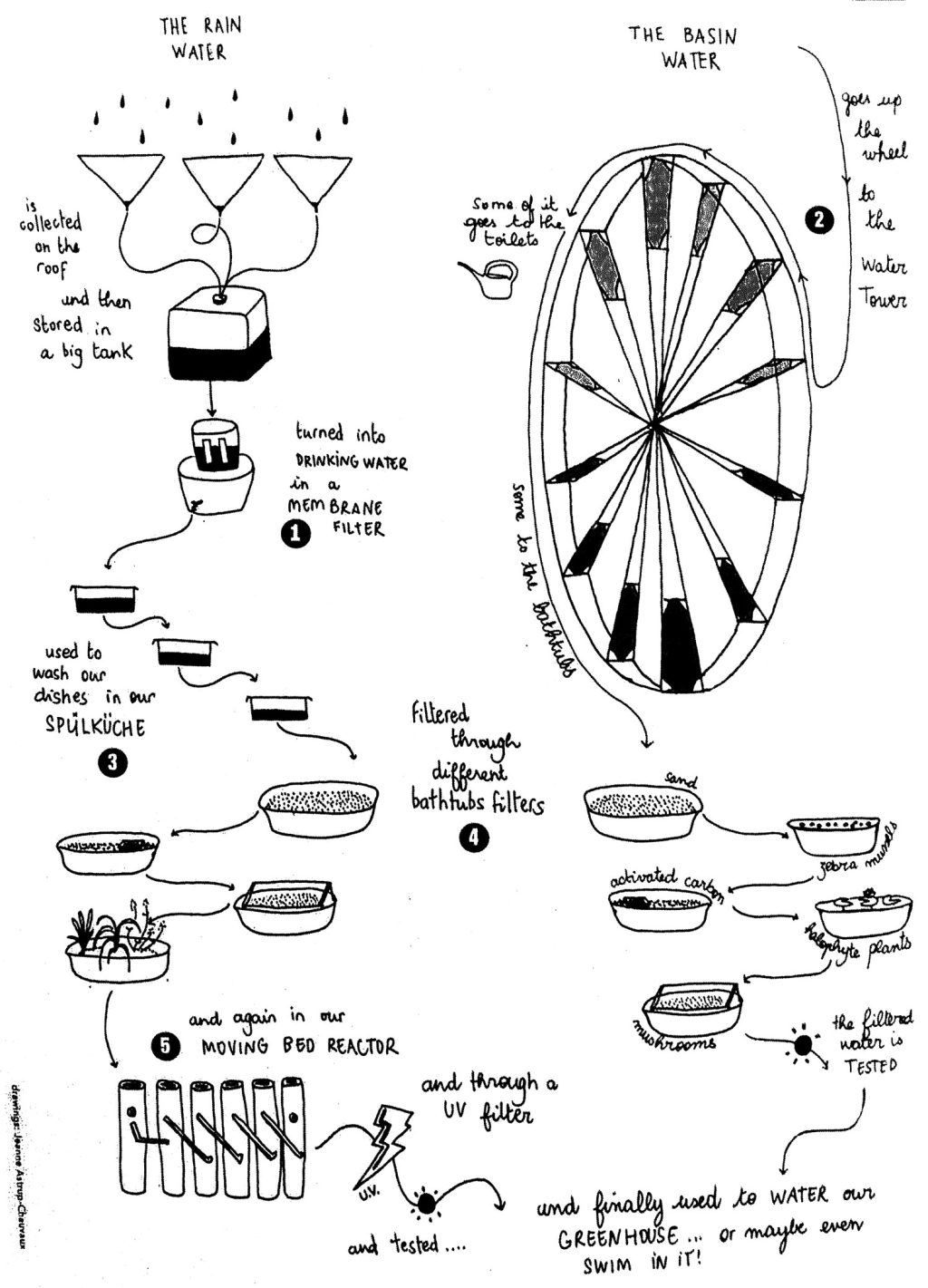Water
Floating University re-envisions an urban water infrastructure that invokes public participation. How will life change as our relationship to water transforms? A fundamental paradigm in our research at Floating University is to emulate Mother Earth’s water cycles rather than mimic Corporate Man’s linear sewer pipes. Water will not fall beneath the streets like garbage into landfills. Rather, water flows down the drain, undergoes organic filtration, and flows back out the spout. Floating University is located in a polluted rainwater basin in urban Berlin. Experimental water systems are constructed at every possible avenue. Its public pedagogy: seminars, workshops, discussions, water filtration systems, water practices and performances, ruminate on our place in the water cycle. Technology is only part of the answer to our challenges with water. What’s missing is our relationship with water.
At Floating University, we have four different types of water on which to experiment:
Rainwater
Rainwater takes a 6 kilometer skydive. On its descent, through the urban atmosphere it absorbs particulate pollution, sulfur dioxide and nitrogen oxides. This tainted rainwater spills off the roofs of the University buildings and funnels through a collection system for reuse.
Basinwater
Basinwater comes from rainwater that lands on the Tempelhof Airport building, airfield and Columbiadamm Road. Currently, this tonic of automobile oil, vulcanized rubber, cigarette chemicals, and trash drains into our large, open air basin where Floating University ‘floats’ and then drops into the canal system and flows to the Spree River.
Greywater
Greywater is water that becomes “dirty” when it is used. There are various “shades” of greywater. For instance, greywater from our offshore kitchen is laden with grease, fat, and food particles, while greywater from bathroom hand washing is laced with E. coli bacteria.
Blackwater
Blackwater is the most delicious. Produced by toilet water’s interaction with human waste, blackwater is full of nutrients for plants as well as pathogens. It’s possible to use aerobic decomposition to turn blackwater into fertilizer and anaerobic digestion to create methane gas for cooking.
video by excellando & Katherine Ball
Katherine Ball is a water artist working on site.



